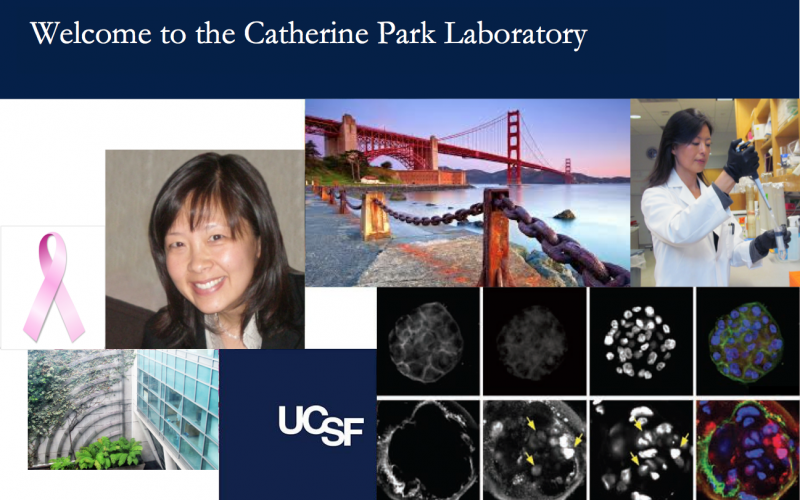Research in the Park lab focuses on understanding the relevance of the cancer stroma in drug development, therapeutic resistance, prognosis and prediction and guiding local therapy.
Research:
We are interested in understanding how constituents of the remodeled extracellular matrix and tumor stroma contribute resistance to therapy. ECM comprise the main ligands for integrins, which transmit extracellular cues to effect cell fate. We have investigated integrin signaling in pre-clinical models of breast cancer, showing its promise as a therapeutic target alone and with radiation therapy. In addition to the molecular aspects of ECM-induced signaling via integrins, recent developments point to the physical and mechanical aspects of the ECM and malignant stroma in cancer progression, and now, possibly resistance. We are interested in understanding how mechanical features of stroma may enhance resistance through integrin-dependent and independent pathways.
Integrin signaling is also well known to cooperate with growth factor receptor signaling, enhancing downstream survival and proliferation signals via common effectors. Data from our group, and in collaboration with others, has shown that b1 integrin signaling cooperates with HER2-signaling, relevant for HER2-amplified breast cancers. We are interested in understanding how the complex interactions between HER2-HER3 are regulated or influenced by b1 integrin.
Finally, to translate our understanding of stroma, in collaboration with Nola Hylton, we have developed novel ways of assessing stromal biology through imaging. Currently, the relevance of stroma in local therapy is not defined. Our initial studies indicate that stroma surrounding tumors exhibits unique features such as high peak enhancement on MRI, and increased vascularity. We are developing novel methods to interrogate stroma, and investigate whether specific phenotypes may have prognostic or predictive value.
